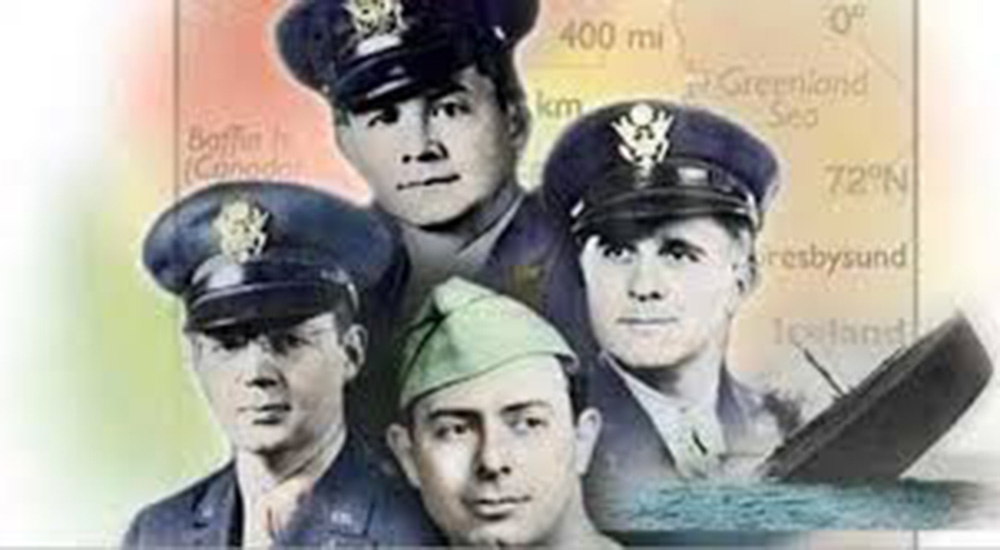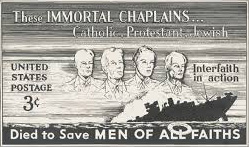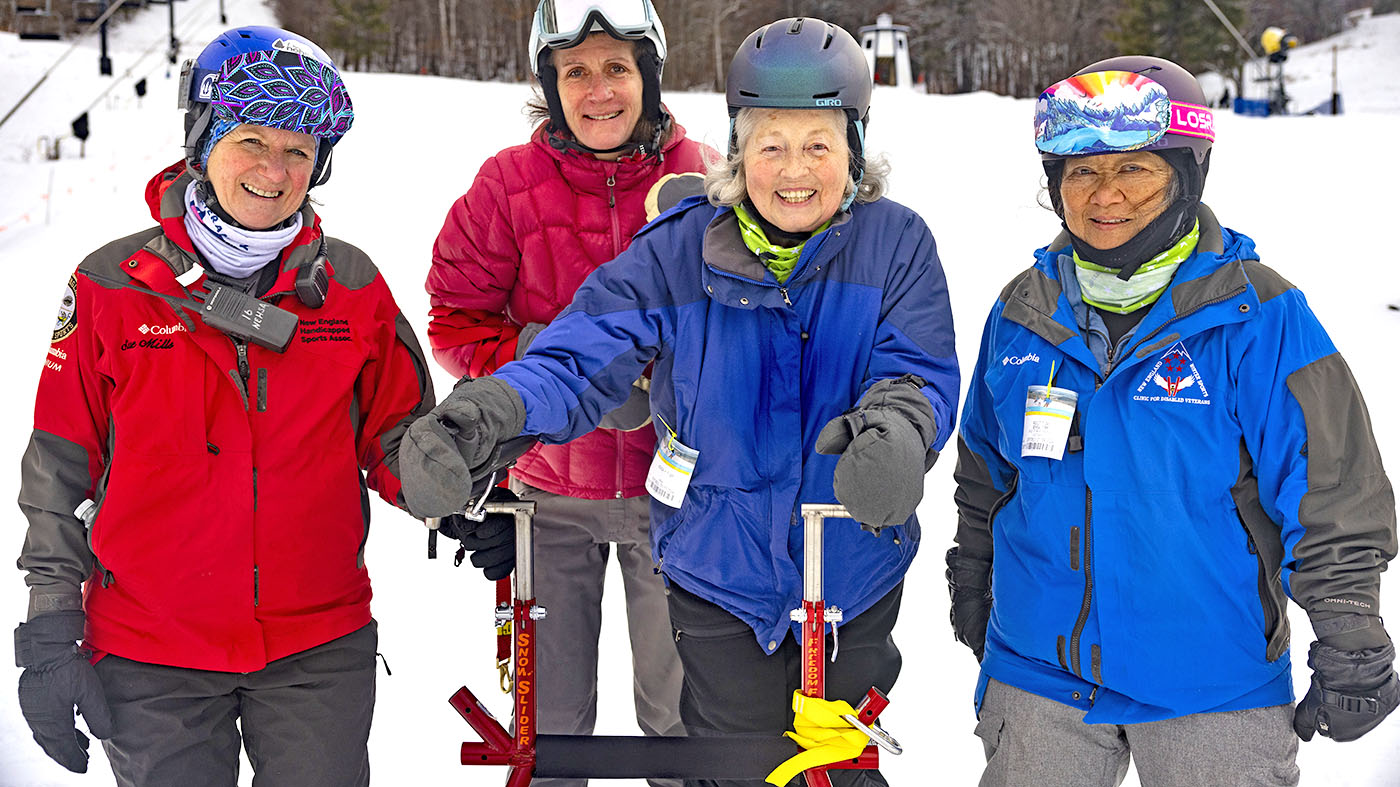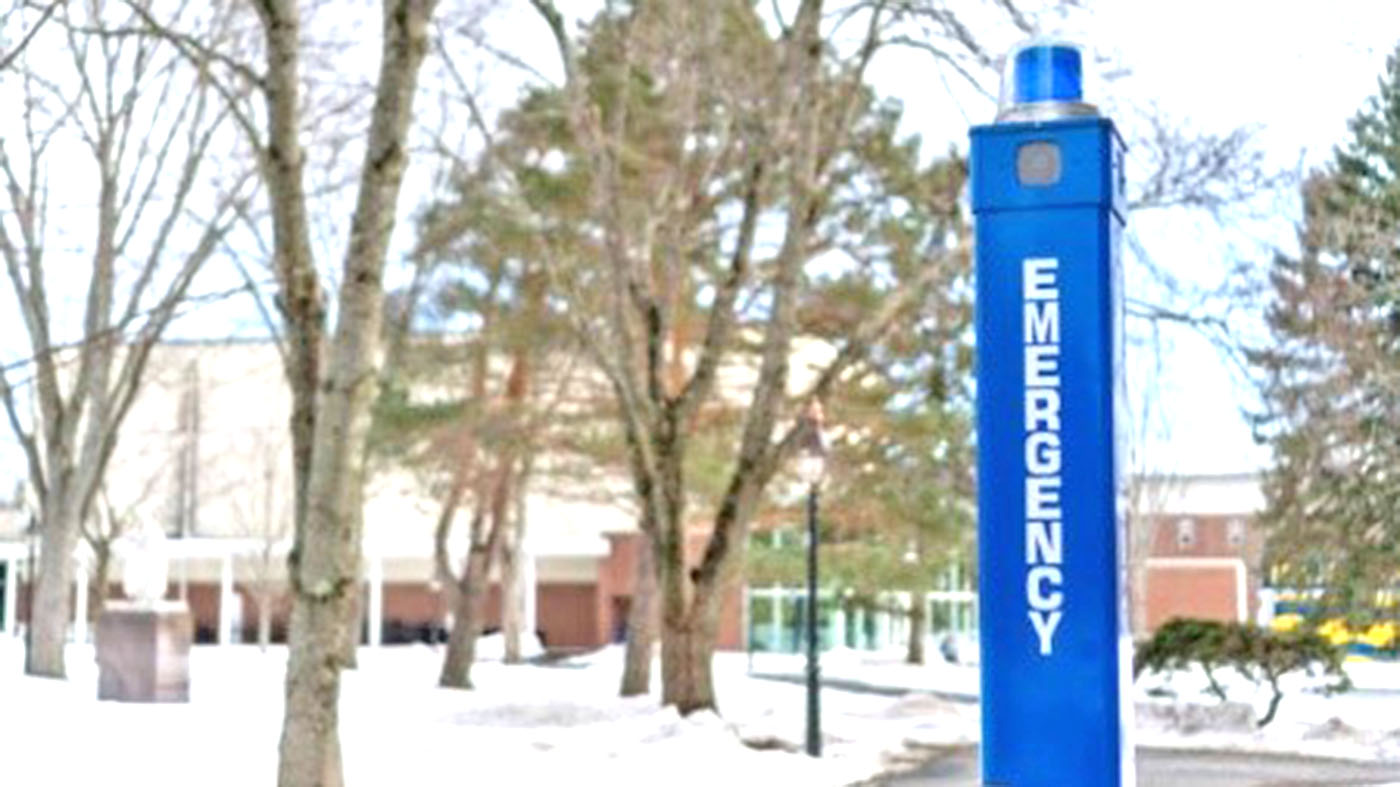VA medical centers across America will hold Four Chaplains Memorial Services this week to honor four military chaplains who gave their lives in World War II after giving their life vests to other soldiers.
Their sacrifice demonstrates the unselfish nature of military chaplains and truly represent service above self.
The services honor:
- Rev. Clark Poling, Dutch Reformed Church of America
- Rev. John Washington, Catholic
- Rev. George Fox, Methodist
- Rabbi Alexander Goode, Jewish
All four were first lieutenants in the Army and part of a U.S. troop transport on the USS Dorchester, Feb. 3, 1943, when a torpedo struck the ship’s flank as it sailed through the icy seas of Greenland.
Slipped off their life jackets
Quickly and quietly, the four chaplains spread out among the soldiers. There, they tried to calm the frightened, tend the wounded and guide the disoriented toward safety.
“Witnesses of that terrible night remember hearing the four men offer prayers for the dying and encouragement for those who would live,” says Wyatt R. Fox, son of Rev. Fox.
Most of the troops were asleep at the time, but the four chaplains calmly led 800 soldiers to the boxes of life jackets and passed them out.
When the boxes were empty, the chaplains slipped off their own life jackets, put them on four soldiers and told them to jump.
The Dorchester went down 25 minutes later. Some 600 men were lost, but the chaplains’ heroic efforts are credited with saving 200 lives. They were last seen on the slanting deck of the ship, with their arms linked in prayer.
That night, Fox, Goode, Poling and Washington became an enduring example of extraordinary faith, courage and selflessness.
The Distinguished Service Cross and Purple Heart were awarded posthumously to the next of kin of all four chaplains December 19, 1944.
Paved the way for interfaith efforts
What the four chaplains did was more than just courageous, said Rev. Scott Orth, an ordained minister through the Evangelical Covenant Church and a VA chaplain.
“Back then, it was truly unheard of to have people of different faiths – a priest, a rabbi and ministers – work together and advocate for one another,” Orth said. “That paved the way for ecumenical and interfaith efforts that began and continue to make the military a better place.”
Orth said he feels a special kinship since he was a Navy chaplain for eight years.
The four chaplains, he said, represent how all the chaplains in the VA try to operate.
“I think, for me, that is what makes the story of the four chaplains so moving. I’m not aware of any other story that combines a faith in God, ecumenical and interfaith camaraderie and teamwork, along with a selfless devotion to others.”
Topics in this story
More Stories
Spinal cord stimulation implantation helps Veterans suffering from chronic pain improve their quality of life without narcotics.
After Addison’s Disease and lumbar spine surgery, nurse Veteran Gayle Smith re-learned how to ski. “You have more courage than you think.”
Follow these 10 winter safety tips to stay warm, safe and protected during the cold winter.








A number of years ago I was honored to represent one of the chaplins in a Scottish Rite degree in their honor. I remember it for all times,especially being a Navy vet.